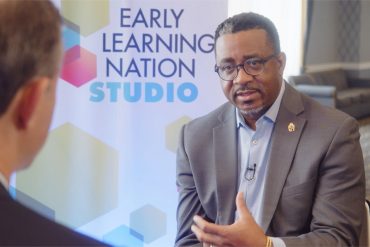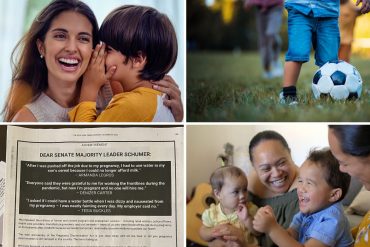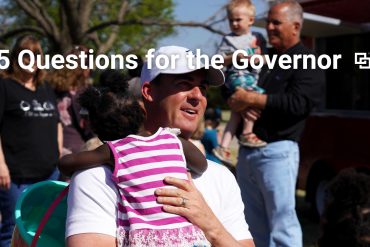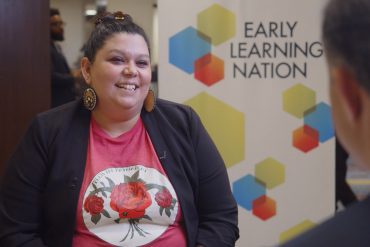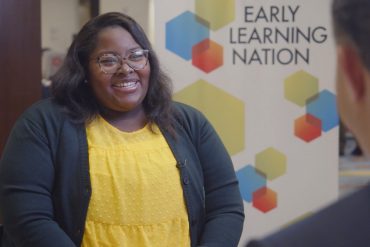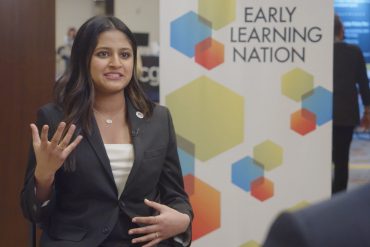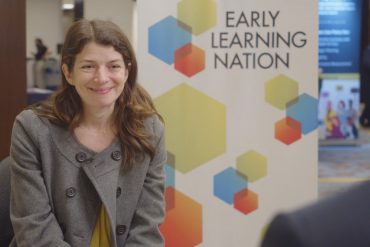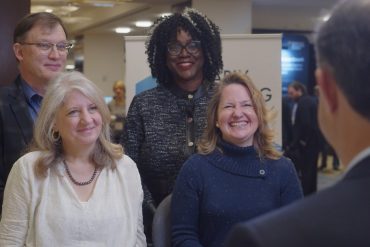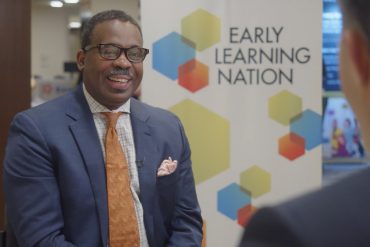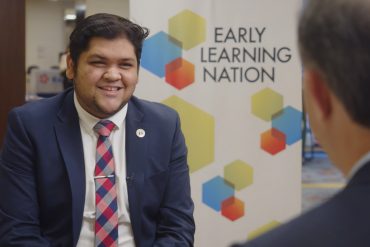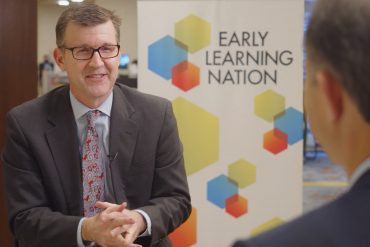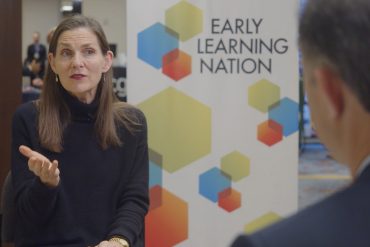The Schott Foundation gathered grassroots organizations from across the country for the Opportunity to Learn Federal Policy Commission. On the eve of their recommendations becoming public, the Commission’s Director, Michael S. Wotorson, discusses why they came together and how their ideas will influence school board actions, local municipal leadership and state policy.
[molongui_author_box layout=slim box_background=#e6e6e6 profile_layout=layout-3 show_headline=no]
Our favorite snippets from the week at Early Learning Nation magazine: Time to Include Non-English Speakers in Pediatric Research. “Addressing...
The State of Oklahoma is on a mission to become a Top Ten state for all Oklahomans. When we presented this concept on the campaign trail in 2018, there was deep support around this opportunity. We know that we must focus on our children and families for us to reach this goal.
April Fournier is not just a Portland (ME) Councilmember, she’s also an early childhood support specialist within an outpatient pediatric clinic. After the child’s medical health visit, Fournier checks in with the parents to provide support on the “social determinants of health”: housing, food and other areas critical to a child’s development.
As an NLC Youth Representative, North Carolina High School junior Ramie Mack has the opportunity to talk with adults, including mayors and city councilmembers. And as she advocates for learning, Ramie wants those leaders to understand that youth face challenges, too. That’s just one reason she advocates for making sure students are part of the conversation when learning is being discussed.
For many high school students across the country, the pandemic resulted in Zoom classes, missed milestones and an increase in mental health concerns. As a member of the Austin Youth Council—as well as NLC’s Council on Youth, Education and Families— Ann Vadakkan advocates not just for youth empowerment, but also for youth mental wellness, raising awareness to help reduce any stigma.
As a Reporting Fellow at New America’s Better Life Lab, Rebecca Gale has covered many aspects of America’s approach to child care. And one thing she knows: it’s complicated. From economics to use cases to the delivery system to funding and beyond, the U.S. has no one-size-fits-all approach. That patchwork leaves too many gaps, and that’s just one reason Gale argues that one way to improve America’s child care system is to improve how journalists report about it.
By creating a community-wide coalition across Austin city and Travis County in 2011— encompassing the public, private and non-profit sectors—Austin/Travis County Success by 6 provides support for families from birth to five. With their new strategic plan—and 38 babies being born every day—the group is trying to improve school readiness overall.
Senior Executive and Director of NLC’s Institute for Youth, Education and Families, Dr. Robert Blaine, says the institute works on many levels: specific programs, cities themselves and the wider population, all to increase outcomes and build more opportunity for children and families. Dr. Blaine’s role also carries an additional benefit: working with the inspiring youth leaders. It’s a blend that requires the skills of an orchestra conductor... and it turns out, Dr. Blaine has those, too.
A key part of youth advocacy is making sure the adults in the room are listening and taking action. Avinash Verma explains how youths connect with their communities differently than adults, and what that means in terms of needed resources and support. Avinash also explains how his community engagement has helped fuel is interest in aviation, including a work-learning program at the airport and with NASA.
As President & CEO of the Smarter Learning Group, Ron Fairchild works directly with communities nationwide. He works with foundations, nonprofits and school districts across the country, all to expand educational opportunities for low-income kids and families. As Fairchild describes, getting to continual strong results takes work. But the ability to get there—and the responsibility to try to improve the next generation of outcomes—exists in every community.
As part of New America’s Better Life Lab, Brigid Schulte helped drive a landmark report that exposed what’s really happening in America’s child care system – namely, it’s not a system. Instead, “it's a patchwork, it's broken, and it's not working well for anyone.” Schulte calls for us to “begin thinking about early care and education the same way we do about K-12.”


